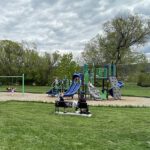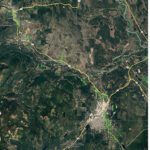Home »

Secondary testing by IH negative for Ebola
The health-care worker who returned from Sierra Leone and has been at Interior Health’s Kelowna General Hospital undergoing testing for Ebola virus disease (EVD) has had a second negative Ebola test.
Initial testing results that came back from the BC Centre for Disease Control on Dec. 30 was negative for EVD. However, a second test was done that day to confirm those results. That second test has now also come back negative for EVD.
A third and final test will also be done to ensure that there has been sufficient time for any potential circulating virus to reach detectable levels. Results from the third test are expected soon. This third test is only being done out of an abundance of caution, given that the patient was so proactive in reporting her symptoms at such an early date. Given that her illness remains mild and not in keeping with EVD, no formal public communication of these results are planned for media at this time, as they are also expected to be negative.
The patient is a health-care worker who returned from treating Ebola patients in Sierra Leone on Dec. 25. On Sunday, Dec. 29 she had a slightly elevated temperature and was experiencing mild flu-like symptoms. In keeping with provincial protocols, she immediately contacted the medical health officer (MHO).
On Monday, Dec. 30, after further consultation with the MHO and provincial public health officials, it was decided that she would come in to Interior Health’s designated type two facility, Kelowna
General Hospital, for EVD testing. While all signs and symptoms were indicative of influenza or a similar respiratory illness, given the patient’s work and travel history, out of an abundance of caution, the patient was isolated and tested for EVD.
This is not the first B.C. health-care worker to return from Ebola- affected countries in West Africa. Each returning worker is connected with public health and is monitored for a 21-day period following their return, during which time they are asked to remain within two hours of a provincial type two facility, and abstain from providing clinical care to patients.
Currently in B.C. seven people, including this patient, are undergoing the 21-day period of self-monitoring. A total of 16 people have returned from the affected countries since August.
e-KNOW







